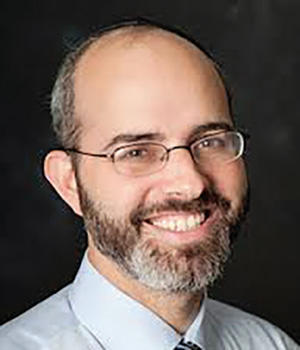
May these words of Torah serve as a merit le’iluy nishmat Menachem Mendel ben Harav Yoel David Balk, a”h, and Meira Chaya Nechama Beracha, a”h, bat Rav David Mordechai Fishel, sheyichyeh.
This week we learned Chullin 76. These are some highlights.
Laws of Tereifot and Deciding Who Should Be the Next Rabbi of the Town
Our Gemara’s teachings about the laws of tereifot were utilized by great halachic authorities to resolve disputes about who would succeed the rav of the town. In one of the towns of Poland, the rav passed away and there was a question about who should receive the position. His son was deserving, and there was a righteous and worthy son-in-law as well. The son announced that he did not want to assume the role. A dispute then broke out in the community. Some argued that since Jewish law teaches that communal positions should be inherited and the son did not want the position, the community should give the role to someone from a different family, a righteous scholar in town. Others argued that the position should be left in the family, and since the son-in-law was a scholar and was interested in the job, the son-in-law should be appointed as the next rav of the city. They could not resolve the argument so they brought the issue to Rav Avraham Bornstein, the author of Avnei Nezer (Shu”t Avnei Nezer Yoreh Dei’ah 312).
In the printed essay of the Avnei Nezer (ot chaf) there is a note from his only son, the Shem Mishmuel. Shem Mishmuel relates there that when he discussed the issue with his father, his father said that they should resolve the dispute the way Knesses Yechezkel resolved a similar dispute.
Years ago, Jewish communities would hire religious functionaries. They would employ a chazan to lead them in prayers, a shochet for ritual slaughter and a shamash to maintain the synagogue. The wealthy members of the community would pay the overwhelming majority of the salaries of the communal servants. A question arose in a community. Some wanted to appoint a new chazzan, shochet and shamash. The wealthy members had certain candidates in mind, while the masses wanted to leave the current individuals in place. Who should get to decide? Should everyone in the town gather and each individual get an equal say, or should the wealthy be allowed to make their own gathering and they would get to determine who would receive the positions since they were the ones paying?
The question was sent to Rav Yechezkel Katzenellenbogen, author of Knesses Yechezkel, who resolved it with our Gemara.
Our Gemara teaches that one of the wounds that renders an animal a tereifa is nifsaka tzomet hagiddin, if the meeting point of the sinews was severed. Our Gemara teaches that there are actually three sinews at the meeting point. Two of them are thin and the third is thick and it is thicker than the two smaller sinews combined. The Gemara records a dispute about an animal in which only the two thin sinews or only the large thick sinew was cut. The halacha is like the more lenient opinion. If only the thick sinew was cut or if only the two thin sinews were cut, the animal is still kosher. If only the thick sinew was cut, the animal is kosher because the majority of the number of sinews is still intact, rov minyan, and if only the thin sinews were cut, the animal is kosher because the majority of the sinew matter is intact, rov binyan. Knesses Yechezkel ruled that the wealthy members, who pay most of the costs, have the status of a thick sinew, binyan, while the poor masses have the status of the majority of the numbers, rov minyan. Our Gemara teaches that either majority can render the animal kosher and still considered possessing of a tzomet hagiddin. He therefore decided that if the majority of the wealthy individuals or if the majority of the poor masses wanted to leave the current communal servants in their positions, the current occupants cannot be fired. Only if both majorities, minyan and binyan, wanted a change would they be entitled to seek out new candidates for the communal positions.
Avnei Nezer suggested to his son that we should learn from the Knesses Yechezkel and our Gemara to resolve the dispute that was brought to him. If either the majority of the wealthy members of the town, rov binyan, or the majority of the regular citizens of the town, rov minyan, wanted to leave the position in the hands of the family by appointing the son-in-law as rav, the son-in-law would be entitled to the position and no one would be able to bring in someone else.
Shem Mishmuel adds that such a dispute arose in the town of Luybatsch. The rav, Rav Dov, passed away, and his son, Rav Efraim Shlomo, who was serving as a judge in Piotrokow, wanted to inherit the position. There was a dispute in the town. Some did not want the son to inherit the position. The matter was brought before a beit din, which included Rav Yehoshua of Kutna and Rav Chaim Eliezer of Kalish. They ruled that if either the majority of the wealthy members of the town or the majority of the regular members of the town wanted the son to inherit the position, then the son would inherit the rabbanus. Shem Mishmuel closes his note by relating, “When I came and told the story to my holy father, he said, “Blessed is Hashem who has put in their mouths true words. Their decision is the correct halachah le’amitah shel Torah.” (Hamevaseir Torani)
By Rabbi Zev Reichman
Rabbi Zev Reichman teaches Daf Yomi in his shul, East Hill Synagogue.













